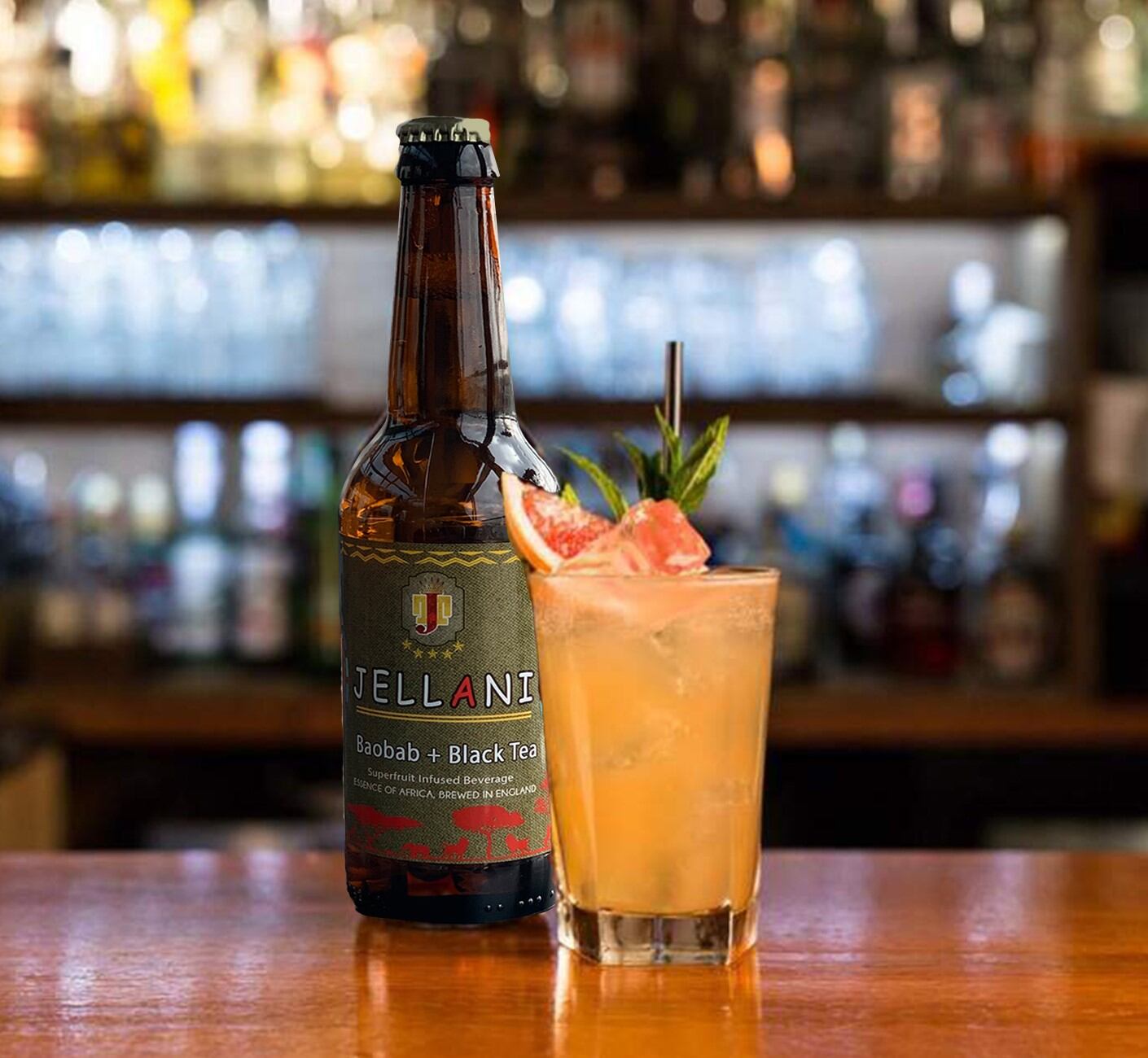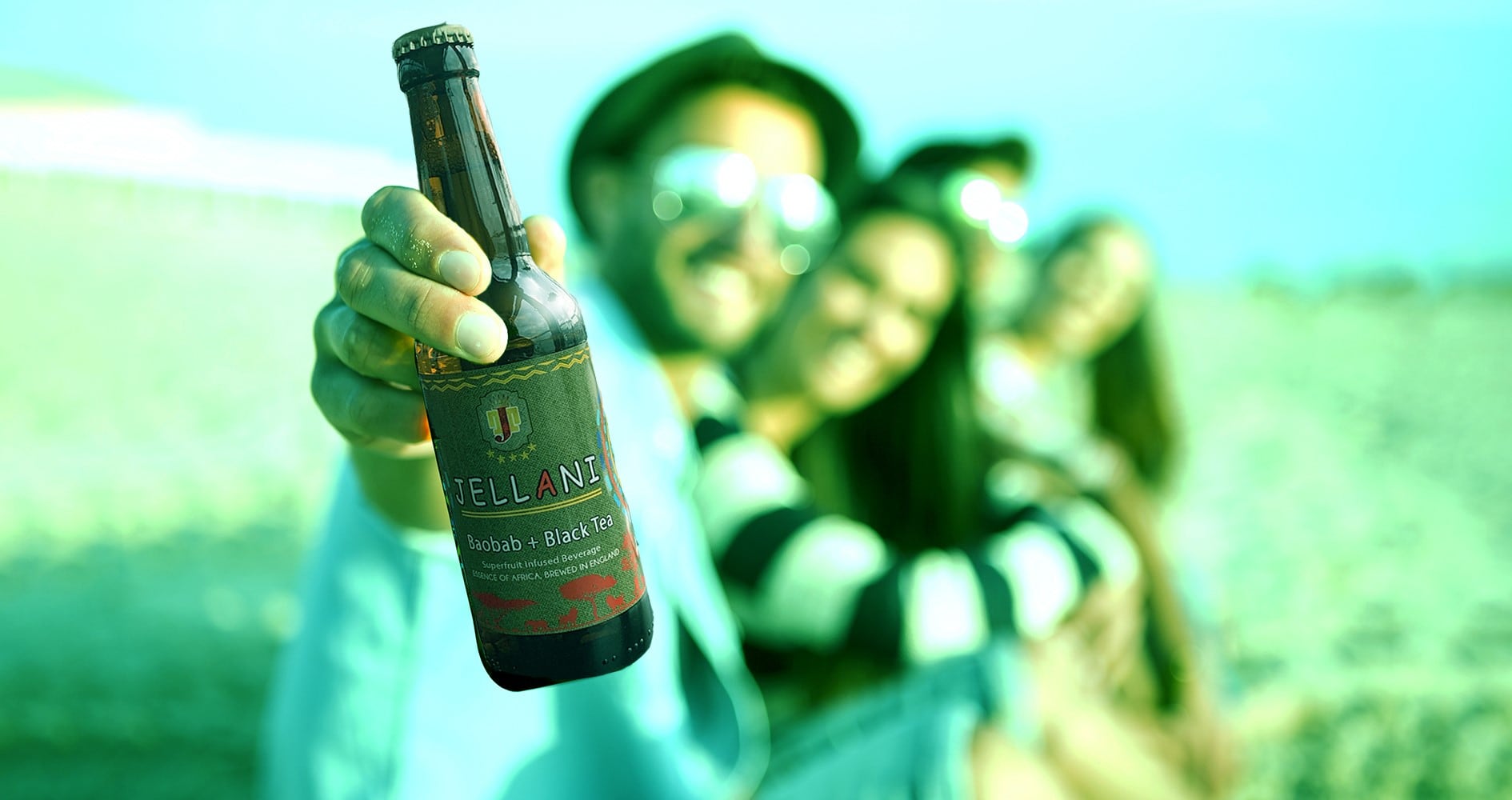The African-inspired premium brand officially launched in the UK in 2018 at the London Business School, and was one of 11 companies chosen to be part of the school’s 2018-2019 incubator – emerging with the LBS Innovation and Entrepreneurs (IIE) Founders Award.
Its aim is to unearth exotic nutrient packed botanicals and introduce them to the UK market place. But in doing so, it also wants to help African suppliers evolve in a responsible way – sourcing little known botanicals in an ethical manner.
Joining the dots
Co-founders Bamidele Omotosho and Kayode Obateru - who both hail from Nigeria - were bought together by a realisation of the potential behind baobab: a superfruit packed with nutrients and sourced from a tree native to Africa.
It was during Omotosho's MBA studies at LBS that they decided to turn this into a business venture.
“As professionals in the city, occasionally yielding to the leisure getaway with colleagues after work, it became apparent from observing associates’ selection of beverages that there is a growing shift in consumer taste towards alternatives with less alcohol contents," said the duo.
“We could relate with this growing consciousness, being mindful drinkers ourselves. However, in such social settings, we often had to settle for the typical high sugar and calorie content offered by non or low alcoholic alternatives. This highlighted the problem – the limited range of high-quality, healthy adult beverages to match the growing demand for by health-conscious consumers.
“Fast forward a few months later and the convergence of these seemingly unrelated life experiences and pursuits kicked off the start of Jellani. We decided to launch a food and beverage company under the auspices of our rich African heritage – this was the unifying theme which connected all the dots.”
Since then, the entrepreneurial duo have been on an upwards trajectory: it is one of the 12 high-impact agri-food finalists of the 2019 EIT Food Accelerator Network (EIT FAN) programme invited to compete at the EIT Food Venture Summit at Lisbon in November.
Black tea, baobab and beer

The result is a de-alcoholised beer alternative, infused with baobab and black tea extract. The beer is on sale in UK bars and restaurants, grocery stores, and online retailers – including Ocado. By infusing baobab and black tea into a beer base, Omotosho and Obateru say they have created a ‘triple treat that can hit several taste notes for enthusiasts and curious consumers alike’.
“This beverage takes you on a playful, yet momentous guilt-free adventure as you indulge in its refreshingly smooth & unique taste. In a class of its own, it boasts of low calories, < 0.5% abv, low sugar, gluten-free, vegan-friendly & the nutrient-dense baobab. The baobab is high in fibre & antioxidants and contains calcium, potassium, magnesium and vitamin C.”
Baobab: 'The tree of life'
Jellani sources organic baobab from Zimbabwe, partnering with the country’s largest ethical baobab sourcing and processing operation. Zimbabwe is ranked by the IMF as the second poorest country in the world. 84% of rural people are classed (by the Government) as poor, and 30% are classed as extremely poor.
“The majority of the very poorest people live in the very driest parts of the country. Which, coincidentally, also happens to be the areas where baobab occurs. That’s why a market for baobab products is so incredibly valuable to people living in these areas.”
The baobab is a remarkably hardy tree: in Zimbabwe, for example, it grows in very dry areas, with rainfall of as little as 500mm a year (this is why it has has such a concentrated vitamin C content).
It’s also unusual, in that the trees fruit in the middle of the dry season, when nothing else grows and therefore there is very little in the way of other income earning opportunities for people.
“The collection, processing and sale of indigenous plant products are often among the few income generating opportunities available in these areas.
“Women from poor households are generally those who rely more on local plants for household use and income. Furthermore, local plants can offer vital insurance against malnutrition or famine during times of seasonal food shortage or emergencies. It is common for rural households to depend on ‘forest’ produce between harvests.
“Income earned from baobab is used mainly to purchase foods; in other cases, it may be invested in agricultural land or agricultural inputs, such as seeds or livestock, housing, education or clothing. Baobab has also attracted considerable interest in recent years due to the increasing recognition of its contribution to environmental objectives.”
Baobab – and beyond!
But baobab is just the start. “We were amazed to find that this impressively memorable fruit is one out of various other nutrients-packed botanicals that Africa’s expanses of fertile arable land have to offer," says the duo.
“There are vast amounts of Africa’s botanicals that have yet to be truly explored and appreciated. The new economy needs these and needs to produce them ethically and efficiently. That’s where we come in.
“We have a compelling authentic story and the founders embody the brand's mission to empower farmers having grown up in Africa. We have access to Africa's vast amount of lesser known botanicals and we believe that we are best positioned to harness them for the world to enjoy.”
Coronavirus: 'A crisis like this is an opportunity to show what we stand for'
With the coronavirus pandemic hitting all sectors - including food and beverage - the duo says its focus is now on adapting to the new reality.
"We are having to adapt like everyone else to stay relevant and competitive. A crisis such as this presents an opportunity to show what we stand for as a brand.
"Our mission and focus is the same, to become a district brand and top player in this sector while maintaining our commitment to rebuild communities being ravaged by this plague, promote healthy living and sustainability."
The brand is running discounts and promotions on its online platforms for key workers and the vulnerable.
It is also looking for partners in the public and private sector such as food tech companies - such as home delivery companies; distributors; restaurants; food charities; food service groups and NGOs - seeking to broaden their product range and support customers during a difficult time.

